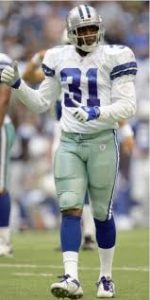
Detroit led 24-7 at halftime during the NFC Championship Game but ultimately lost. However, they shouldn’t regret the boldness that propelled them to that point.

Ultimately, Dan Campbell and the Detroit Lions lost in their characteristic aggressive style. Despite holding a commanding 24-7 lead over the San Francisco 49ers at halftime of the NFC Championship Game, they witnessed it evaporate in less than a quarter. This collapse epitomized a unique form of disappointment known as “Lion-ing.”
How does a 17-point advantage vanish in a mere eight minutes? It’s a confluence of miscues, bad luck, and even ladybugs. When inexplicable events unfold, there’s limited control an NFL head coach can exert. You can’t anticipate Josh Reynolds dropping a critical fourth-down conversion or Jahmyr Gibbs fumbling due to a miscommunication. Neither can you foresee your special teams mishandling a well-placed punt, leading to a touchback instead of pinning San Francisco deep in their territory.
Above all, you can’t predict instances like 49ers quarterback Brock Purdy’s improbable pass deflecting off an opponent’s facemask into Brandon Aiyuk’s hands for a 51-yard completion.
Reflecting on his catch, Aiyuk remarked, “Before the game, a ladybug landed on my shoe. And you all know what that means… That’s all I can say. Other than that, I don’t know.”

Aiyuk’s catch in the third quarter marked the turning point of the NFC championship match. Prior to that moment, the Lions had executed nearly flawlessly. Brock Purdy’s passes were erratic, often launched into congested areas with optimism rather than accuracy. The Niners defense struggled to contain the Lions’ offensive onslaught.
Then came the pivotal catch. Following that, Reynolds missed another catch on third down, and the Lions failed to capitalize on a crucial sack opportunity. In the blink of an eye, the game was tied.
Amidst the chaos and the game slipping away, Campbell adhered to his philosophy. He entrusted his quarterback, Jared Goff, with the ball and opted for multiple fourth-down attempts instead of settling for field goals to halt the momentum swing. Despite having the chance to regain a three-score lead early in the second half and disrupt the Niners’ momentum, he opted against kicking a field goal. Similarly, when faced with the opportunity to tie the game with a field goal attempt from the Niners’ 30-yard line on fourth-and-three midway through the fourth quarter, Campbell again chose not to. It was touchdown or nothing, embracing a high-risk, high-reward approach. However, Goff’s pass fell incomplete, allowing the Niners to capitalize with the game-sealing score.

In the days to come, there will likely be much debate over Campbell’s decision-making. He had multiple chances to kick field goals to halt the opposing team’s momentum. Instead of trailing at the end, the Lions could have been on equal footing, with an opportunity to secure victory. Instead, they found themselves attempting to overcome a 10-point deficit as time dwindled.
Campbell’s aggressive style sets him apart, defying conventional norms. It’s this bold approach—his willingness to make fourth-down decisions and his faith in Goff—that propelled the Lions to the NFC title game. Nonetheless, reconciling Campbell’s decision to kick a field goal at the end of the first half instead of pushing for a touchdown with his refusal to kick field goals in the second half presents a challenge. While pragmatism prevailed momentarily when there was a chance to extend the lead, Campbell reverted to his daring tactics in the second half.
Yet, Campbell remains unapologetically true to himself. He transformed skeptics into believers by consistently betting on his players. Despite doubts surrounding Goff’s capabilities, unconventional draft choices, and diverging from analytics-driven fourth-down calls, Campbell stayed committed to his beliefs, even on championship Sunday.
Nevertheless, Campbell dared to defy convention.
The Detroit Lions challenged traditional norms throughout the year, proving skeptics wrong at every turn. For two quarters on Sunday, they embodied the team Campbell envisioned when he first assumed the role: A dominant offense centered around power running, explosive passing plays, and a formidable defensive line. The Lions dominated both sides of the ball in the first half, amassing 182 rushing yards and three touchdowns at an impressive 6.2 yards per carry. Despite the game slipping away, Goff showcased an outstanding performance, relentlessly attacking the field even as victory seemed out of reach. The highly paid Niners defensive line found themselves struggling to keep pace throughout the game.
Given the circumstances, it’s understandable that Campbell remained steadfast in his approach.
Yes, they squandered the lead. Yes, they committed uncharacteristic errors. With a kicker boasting a 76% success rate from 40 to 49 yards and only a 46.7% accuracy from beyond 50 yards, coupled with an offense in rhythm, it seemed logical for Campbell to opt for aggression over field goals. He was playing the odds; the Lions were determined to fight until the end, as they had done all season.
The process, according to analytics, was sound; however, the outcomes were dismal.

Had Campbell chosen to kick even one of those field goals, the Lions might have been celebrating a trip to Vegas today. Yet, doing so would have contradicted the Fighting Campbells’ ethos.
Campbell’s strategic approach resembles that of a chess player rather than his infamous kneecap-biting persona. However, his intense demeanor holds significance. While many coaches emphasize the importance of culture, Campbell embodies it. Over three seasons, he has transformed the Lions from perennial underachievers into genuine contenders, instilling a fearless mindset in team-building, play-calling, and confronting external criticism.
The Lions have never made it to a Super Bowl, but there was a genuine belief that this could be their year. Even if not to win it all, they hoped to at least secure a spot in the big game.
This optimism stemmed solely from Campbell. It was his vision, the culture he cultivated, and his unwavering faith in his players that propelled the team within reach of a championship, just six quarters away. Throughout much of the season, his boldness paid off as his players executed admirably. However, in the grandest game of all, those same players faltered.
“I understand the scrutiny I will face,” Campbell remarked after the game. “But, you know, it just didn’t work out.” Aggressiveness propelled the Lions to the brink of the Super Bowl, yet sloppy mistakes denied them a chance to end a 60-year title drought.
The Patrick Mahomes-Travis Kelce combination propelled the Chiefs to a first-half lead in the AFC title game. However, they were held scoreless in the second half, relying on the team’s defense to fend off a potential Ravens comeback. While Baltimore’s offense struggled, facing issues such as an ineffective run game and offensive line breakdowns, the Chiefs’ defense, orchestrated by Steve Spagnuolo, forced critical turnovers and limited the Ravens to 10 points. L’Jarius Sneed’s pivotal play, forcing a touchdown-saving fumble, underscored the defense’s impact.
While the Chiefs remain synonymous with Mahomes, their defense stepped up in a season where the offense faced challenges. Throughout the AFC playoffs, they conceded only 41 points, despite facing formidable opponents.
The Ravens’ postseason disappointment highlighted offensive struggles, particularly against the Chiefs. Despite offensive coordinator Todd Monken’s accolades for revamping the offense during the regular season, the Ravens struggled to find rhythm against Kansas City. With only one touchdown in 10 possessions and key turnovers, the Ravens failed to capitalize on defensive efforts that forced consecutive punts.
While Lamar Jackson’s future remains promising at 27, the Ravens’ missed opportunity underscores the urgency for improvement.
In the broader context, Raheem Morris returns as head coach to the Atlanta Falcons, while Bill Belichick faces uncertainties in the coaching carousel. The Philadelphia Eagles make significant coordinator changes following a disappointing season. Reflecting on the turbulent events of 2023, there’s a call for renewed hope and support for independent journalism as global challenges persist.







